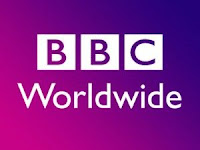What is Public media?
As defined during the WGBH
Educational Foundation Conference in 2006, Public media is, 'Media
whose mission is to serve or engage a public, includes traditional publicly
funded broadcasters and networks, as well as public uses of new platforms and
distribution mechanisms such as the internet, podcasting, blogging.
Increasingly the term public media is less associated with tax-payer funded
broadcasting; it may be for profit, as long as its main purpose is to serve the
public and not to turn a profit.'
So, Public media differs from Commercial media in the way that profit is not ever the main priority. It is generally government or license funded. It also differs in terms of style; Public media is seen to be serious, it values importance over interest and is always carefully considered before it is broadcasted. According to Nigel Milan (former managing director of the SBS), 'The difference between Commercial media and Public media is the difference between consumers and citizens'. This could mean people who are genuinely interested in the world, news and important issues are more likely to tune into Public media. Sometimes however, opposing views refer to Public media as being boring,
elitist, of limited interest, poorly presented, or out of touch.
In a democratic society, the role of Public media is to support the public, and democratic processes. Public media must have public value. Public value, as the BBC states, should include an embedded public service ethos, value for license fee money, weighing public
value against market impact, and public consultation.
The 1995 Broadcasting Research Unit defined public
service broadcasting as involving –
o Geographic universality- it should be available to whole population.
o Universality of appeal – it should cater for all tastes and interests.
o A special relationship to the issue of national identity and community.
o Distance from all vested interests, especially those of the Government.
o Universality of payment – one main instrument of broadcasting should be directly funded by the corpus of users.
o The encouragement of competition for good programming, not competition for numbers.
o The liberation rather than restriction of broadcasters.
News is a key function of public media - 41% of Australians get their news from the ABC, which here is a major Public media network. The ABC was is Australia's oldest Public media organisation, founded in 1929 as a national building project. The ABC is said to have the capability to reach far in to
the minds of Australian citizens. Some major productions of the ABC include -
Another major Public media network in Australia is the SBS, founded in 1980 as a 'multicultural' network. The purpose of the SBS is to 'provide multilingual and
multicultural television and radio services that inform, educate and entertain
all Australians, and in doing so, reflect Australia’s multicultural society'. The SBS was originally entirely public funded, but now includes advertising, taking on a sort of 'hybrid' funding - 80% Public, 20% Advertising. Some major productions of the SBS include -
The Commercial Sector -
Although the main focus of Public media organisations is not profit, some have introduced some Commercial branches in their companies to keep up with financial demand. These include-
Some international Public media corporations are -
So what are the current challenges for Public media?
1. The first and largest challenge for Public media organisations, is gaining their independence.
The fact that the ABC and SBS receive funding from the government, means they need to be careful about what they say about the government. Exposing government scams/injustices puts them at risk of losing funds, but turning a blind eye to these same things could make them appear to lack political independence, which is not in their best interests either. They must engage in, and give voice to the democratic process, both mainstream and niche in the most unbiased manner possible.
2. The second is that they must make themselves relevant in today's society, without compromising on quality.
If the Public media can find a way to appeal to the masses, it could be hypothesised that the masses would end up being more accurately informed about national events, and would gain knowledge and interest in international events that they were previously not exposed to at all. Acquiring larger audiences would also help Public media companies to acquire more funding. However, the integrity and quality of the content produced must not be compromised in this process.
In my personal opinion, I support Public media over Commercial media any day. What I am looking to gain out of participating in the media cannot be sold to me, which is why I tend to avoid Commercial outlets. As a budding journalist, I would be incredibly proud to one day be involved with a Public media corporation such as the ABC where I would have freedom to discuss what I believe is important, and not what the editors believe will gain ratings.





















No comments:
Post a Comment